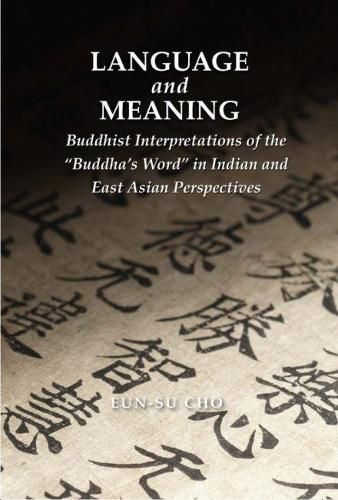Readings Newsletter
Become a Readings Member to make your shopping experience even easier.
Sign in or sign up for free!
You’re not far away from qualifying for FREE standard shipping within Australia
You’ve qualified for FREE standard shipping within Australia
The cart is loading…






The nature of the Buddha’s speech, buddhavacana, has been discussed by Buddhist thinkers from soon after the Buddha’s lifetime. In modern Buddhist scholarship it seems natural to focus on the textual record of the Buddha’s teachings, but overemphasizing that aspect risks losing sight of the potency of the Buddha’s speech to effect liberation. Comparing Abhidharma and Chinese Buddhist conceptions of the Buddha’s word, Eun-su Cho’s study addresses the transmission and reinterpretation of theories of language and opens a doorway to Buddhist philosophical thought in East Asia. This is particularly important because technical Buddhist philosophical thought in East Asia has long been neglected, and has become overshadowed by academic and popular attention to Tibetan Buddhist philosophical thought. In contrast to the perception of greater legitimacy accorded to Tibetan thought through its association with Indian Buddhism, the doctrinally dense works of East Asian Buddhism have not been the object of equally intense study, yet such works exist and continue to deserve greater attention. Cho’s Language and Meaning offers an important pathway into these discourses.
$9.00 standard shipping within Australia
FREE standard shipping within Australia for orders over $100.00
Express & International shipping calculated at checkout
The nature of the Buddha’s speech, buddhavacana, has been discussed by Buddhist thinkers from soon after the Buddha’s lifetime. In modern Buddhist scholarship it seems natural to focus on the textual record of the Buddha’s teachings, but overemphasizing that aspect risks losing sight of the potency of the Buddha’s speech to effect liberation. Comparing Abhidharma and Chinese Buddhist conceptions of the Buddha’s word, Eun-su Cho’s study addresses the transmission and reinterpretation of theories of language and opens a doorway to Buddhist philosophical thought in East Asia. This is particularly important because technical Buddhist philosophical thought in East Asia has long been neglected, and has become overshadowed by academic and popular attention to Tibetan Buddhist philosophical thought. In contrast to the perception of greater legitimacy accorded to Tibetan thought through its association with Indian Buddhism, the doctrinally dense works of East Asian Buddhism have not been the object of equally intense study, yet such works exist and continue to deserve greater attention. Cho’s Language and Meaning offers an important pathway into these discourses.